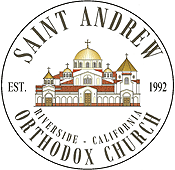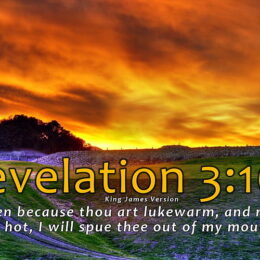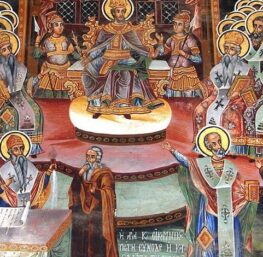 8/25/2010 – Fr. Josiah Trenham –
8/25/2010 – Fr. Josiah Trenham –
A Parishioner Inquires: “I understand that Leo Tolstoi was an excommunicant of the Orthodox church, but in his book The Kingdom of God is Within You, he raises an interesting question. Tolstoi posits that since Christ commands us to ‘resist not’, and to ‘turn the other cheek’, we should not resist physically anybody who would harm us. I have never been able to reconcile this notion to my own experience in life, considering that on more than one occasion, in order to protect those for whom I care, I have resorted to violence or to the threat of violence. In addition, in the life of Father Arseny, there is a passage in which a soldier-turned-priest beats a group of would-be rapists to preserve the honor of his wife. He experiences a measure of guilt for this, but is consoled by his bishop, since the safety of another was concerned. Can you give me an idea of the Orthodox position on the use of violence as a defensive measure?”
Fr. Josiah writes, “We have 20 centuries of warrior saints. Some of our greatest are St. George, St. Demetrios, St. Theodore the General, etc. They were men who utilized immense physical force to suppress evil and defeat injustice. There was also a time for most of them to be resigned to martyrdom. Violence is a virtue when exercised lawfully in defense of the weak, the homeland, etc. in a justifiable cause. Violence is also a virtue when exercised by the state in the maintenance of order, the punishment of criminals, etc. In these cases it is not only optional but required by the law of God. To not apply the law is the civil realm is actually an act of injustice against the citizenry.
Violence on the personal level is something entirely different. The command of our Savior to turn the other cheek is not a check against violence as much as against personal vengeance, which is strictly forbidden a Christian. It is also a call to accept dishonor and insult without returning evil for evil. Being slapped in the face is not so much a violent assault as a deep insult. We are called by our Savior to return a blessing to those who insult us and to love our enemies. Besides our Holy Warrior saints who demonstrate how to use physical force in defense of one’s nation or the lives of others, we also have Passion Bearer Saints who allowed themselves to be slain in order to quell violence in their own flesh, and sometimes (as in the case of St. Moses the Black and many neo-martyrs of the Turkish yoke) to atone in some sense for their own sins. No ethic of violence should be constructed that does not accommodate both realities.”
Listen to the words of Elder Paisios the Athonite in defense of justice: “When ohters are being wronged and someone shouts in anger out of real sense of pain and suffering, then that is a most righteous anger. When he is angry because he is wronged, then that is not pure anger…Phineas, the grandson of the high priest Aaron, had committed two murders and yet God established a covenant whereby the perpetual priesthood of Israel would derive from him and his descednants! When he saw the Israelite man Zimri sinning with the Midanite woman Cozbi before Moses and all the Israelites, Phineas could not control himself; he rose and slew both of them, putting an end to God’s anger. Had he not slain both of them, the wrath of God would have befallen all of the people of Israel…When I read in the Psalter the verse ‘Then Phineas stood up and interposed, and the plague was stayed,’ I kiss his name many times. Even Christ Himself, when He saw in the Temple courtyard merchants selling calves, sheep, doves and the money changers, took a whip and drove everybody out.”
HT: The Arena



